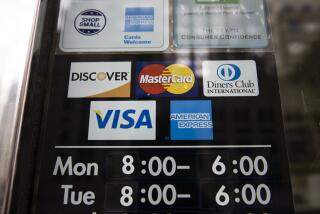Problem Loans for U.S. Banks Rise as Manufacturers Struggle
- Share via
WASHINGTON — The number of big loans with problems that U.S. banks are holding has risen this year, as the ability of manufacturers, particularly in the automotive industry, to repay loans weakened, banking regulators said Monday.
Adversely rated credits -- loans that are likely to result in some loss for the lender without corrective action -- rose to 5.1% of all credits from 4.8% a year earlier, regulatory agencies said.
The review, published annually by the Federal Reserve, the Office of Comptroller of the Currency, the Federal Deposit Insurance Corp., and the Office of Thrift Supervision, looks at syndicated loans, generally commitments of $20 million or more shared among three banks.
Large loans rose to $1.9 trillion in credit commitments, 15.2% more than in 2005 and the largest expansion in nearly eight years, regulators said.
The current level of commitments is just below the 2001 peak of $2 trillion, but problem loans are at 40% of their peak level in 2002. The increase reflects a rise in merger and acquisition financing, the regulatory agencies said.
The biggest increase in problem credits was at non-bank financial institutions -- brokerages, mutual funds, insurance companies and hedge funds -- although problem loans at banks also rose, regulators said.
Although the report shows an improvement in credit quality, regulators saw a trend of easier underwriting standards in the big loan market.
More to Read
Inside the business of entertainment
The Wide Shot brings you news, analysis and insights on everything from streaming wars to production — and what it all means for the future.
You may occasionally receive promotional content from the Los Angeles Times.










